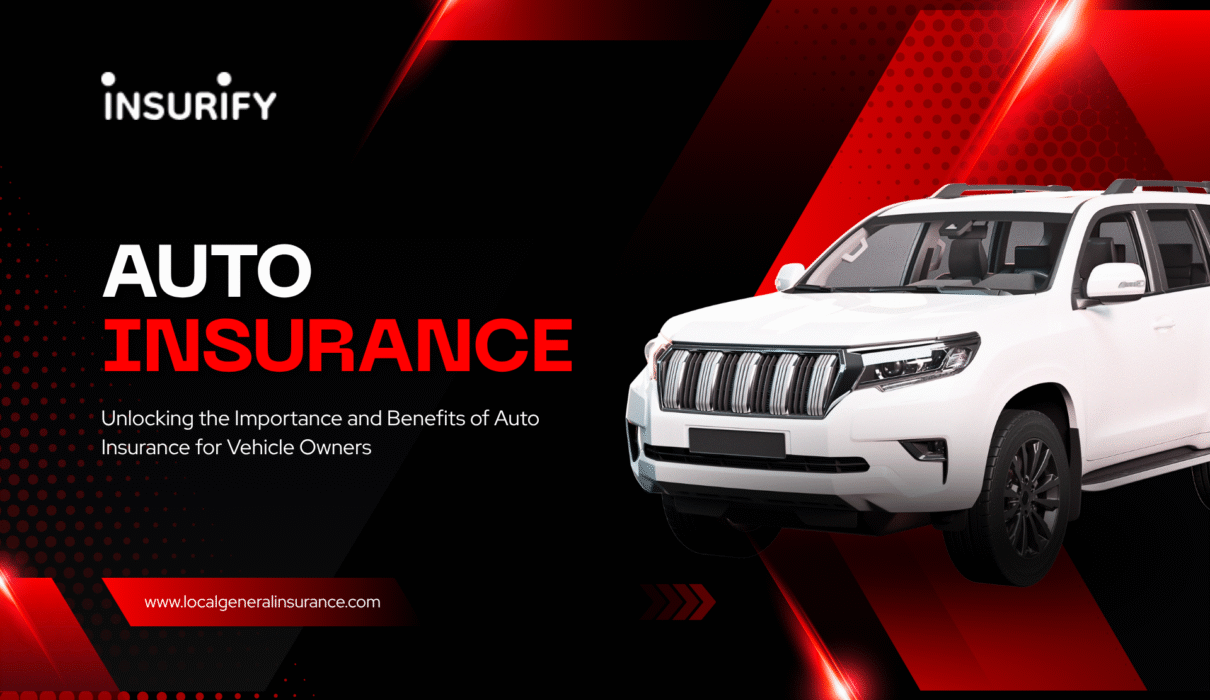Auto insurance is more than just a legal requirement in many regions; it is a vital safeguard for vehicle owners, offering financial protection, peace of mind, and a safety net in times of unexpected events. Whether you’re a seasoned driver or a new vehicle owner, understanding the importance and benefits of auto insurance can help you make informed decisions and ensure you’re adequately protected. Here’s a deeper dive into why auto insurance is essential and how it can benefit vehicle owners.
1. Financial Protection Against Unforeseen Costs
Accidents, thefts, and natural disasters can occur without warning, leading to significant financial loss. Auto insurance is designed to absorb the financial burden in such events, helping you repair or replace your vehicle without the heavy out-of-pocket expenses that might otherwise be unmanageable. It also extends to covering third-party damages, including bodily injury and property damage, so you won’t be personally liable for someone else’s loss.
2. Legal Requirement
In most places, auto insurance is mandatory for vehicle owners. Driving without insurance can lead to severe legal consequences, such as hefty fines, license suspension, or even jail time. The basic minimum coverage required by law ensures that all drivers have at least some level of protection in case of an accident, promoting a safer driving environment for everyone on the road.
3. Liability Coverage
Liability coverage is one of the most crucial components of auto insurance. If you’re at fault in an accident, this part of your policy covers the damages to the other party, both in terms of bodily injury and property damage. Without it, you could face expensive lawsuits or medical bills that could financially cripple you. Liability coverage helps prevent such outcomes and ensures that victims of accidents are compensated for their losses.
4. Medical Coverage
Auto insurance can cover medical expenses resulting from an accident, regardless of fault. This includes the costs of treating injuries sustained by the driver, passengers, or even pedestrians involved in the accident. This can be particularly valuable in cases where injuries are severe and require long-term medical care, rehabilitation, or specialized treatments.
5. Comprehensive and Collision Coverage
Comprehensive coverage protects your vehicle from non-collision incidents, such as vandalism, theft, or damage caused by natural disasters (hail, floods, etc.). Collision coverage, on the other hand, covers repairs or replacement when your vehicle is damaged in an accident, regardless of who is at fault. Together, these two types of coverage ensure your vehicle is protected in almost every possible situation, keeping you financially secure in the event of an unfortunate event.
6. Uninsured/Underinsured Motorist Protection
Despite the legal requirements, there are still many drivers on the road without adequate insurance. If you’re involved in an accident with someone who lacks sufficient coverage, an uninsured/underinsured motorist policy can step in to cover your expenses. This ensures that you’re not left with the financial responsibility for repairs or medical bills due to someone else’s negligence or lack of coverage.
7. Peace of Mind
One of the most significant advantages of auto insurance is the peace of mind it provides. Knowing that you have financial protection in place can significantly reduce stress in the event of an accident or damage. Whether it’s a minor fender-bender or a major collision, having insurance ensures you’re not caught off guard by the potential financial fallout.
8. Car Rental Coverage
In the unfortunate event that your vehicle is out of commission due to an accident, many auto insurance policies offer rental car coverage. This benefit helps you avoid the inconvenience of being without transportation while your car is being repaired. It can cover the cost of renting a vehicle, so you don’t have to worry about arranging alternate transport.
9. Protecting Other Drivers
Auto insurance not only protects you but also ensures that other drivers and pedestrians on the road are covered if you’re involved in an accident. This is particularly important for maintaining a sense of community responsibility and safety on the roads, reducing the chances of serious legal or financial consequences in the aftermath of an accident.
10. Insurance Discounts
Most insurance companies offer a variety of discounts that can lower your premiums. These can include discounts for safe driving, installing safety features in your vehicle, bundling multiple policies (e.g., home and auto insurance), and even maintaining a good credit score. These discounts can help make auto insurance more affordable while still providing you with the coverage you need.
Conclusion
Auto insurance is not just a legal obligation—it is an essential part of being a responsible vehicle owner. The right policy provides financial security, protects you from liability, offers medical coverage, and ensures you’re prepared for unforeseen incidents. By understanding the full range of benefits, vehicle owners can make informed decisions and enjoy greater peace of mind while driving.


